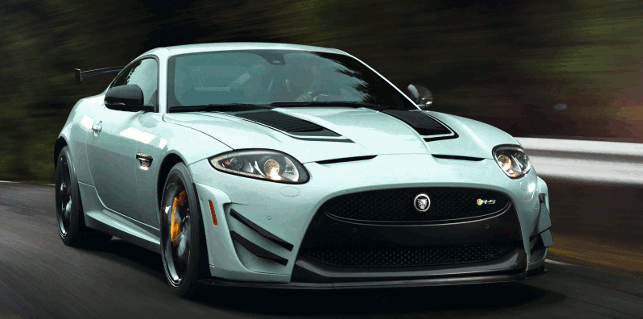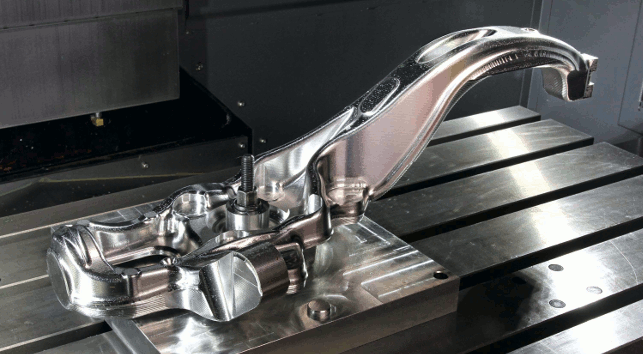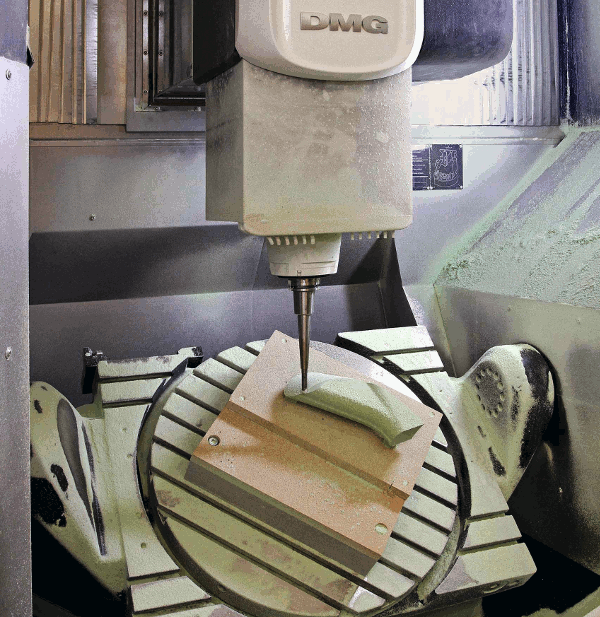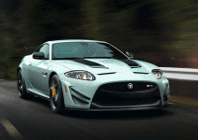Jaguar Land Rover (JLR) is one of Philip James’ biggest clients. This Coventry based subcontracter machines prototype suspension, chassis and steering components for practically every make of Jaguar, Range Rover and Land Rover, including the limited edition Jaguar XKR-S GT, which was launched in October 2013.

The Jaguar XKR-S GT coupe, on which the front steering knuckles are machined on Hurco machining centres at Coventry subcontractor, Philip James
For this £135,000, five-litre, V8 coupe, Philip James produced the front steering knuckles. Knuckles in particular require intensive milling. They start as a solid round aluminium billet that is typically reduced from 94kg to less than 6kg when the part is fully machined.
For subsequent volume production, the components are produced from aluminium forgings – unless it is for a small run of cars like the XKR-S GT.
Philip Whitehouse, managing director of Philip James, states, “One of the front knuckles for JLR was proving problematic to machine.
“While most of the milling and drilling could be carried out on one of our 3-axis Hurcos, the component then had to be transferred to a CNC jig borer for five holes to be interpolated at three different angles – and therefore in three set-ups.
“We decided to buy a Hurco VMX42SR 5-axis machining centre to interpolate all the holes to within ±10 microns in one automatic, 20-minute cycle, much faster than the two and a half hours it used to take on the jig borer.”
Faster changeovers
Apart from decreasing the cycle time, the new 5-axis process eliminates the need to use a tooling hole for component alignment prior to boring. One-hit machining on the Hurco also allows Philip James to swap between producing the two hands more quickly.
This is important, as JLR often cannot wait for a full batch of, say, 20 left hand and the same number of right-hand knuckles to be delivered in one consignment. Faster changeovers increase productivity by minimising spindle idle time.
The Hurco VMX42SR is the first 5-axis machining centre at Philip James, which Whitehouse asked Hurco to modify so that the B-axis head can be tilted past horizontal to allow cutter access for all JLR knuckle bores to be interpolated in one hit.

A front knuckle for JLR, after all 3-axis metalcutting has been completed on the Hurco VM20i
The required negative angle was –8 degrees. Hurco engineers removed the limit switch on the head, allowing it to tilt up to –20 degrees. So other features like undercut faces can also be machined without repositioning the part on an angle plate, again saving time and improving accuracy.
The modification means that the head guarding comes close to the table and especially near to a laser tool measuring device. To avoid any chance of collision, the subcontractor used Work NC computer aided manufacturing (CAM) software from Sescoi to program the machining cycle and check for interference.
Although the knuckle application requires 3+2 axis machining, the VMX42SR is capable of full 5-axis cycles. Whitehouse is hopeful that it will attract additional work from the aerospace and motorsport sectors and also pointed out that it will reduce the need to use expensive form cutters.
Right formula
Freeform Technology, a CNC machine shop based in the UK’s motorsport valley in Buckingham, supplies a range of F1 teams including Red Bull Racing, Lotus, Mercedes GP, Williams, McLaren and Marussia.

The latest 5-axis machining centre to be installed at Freeform Technology’s 6,000 sq ft facility is a DMU65 monoBLOCK 5-axis universal machining centre from DMG MORI.
This German-built machine was bought specifically for its ability to tackle any material including the toughest of alloys.
In addition to machining tooling block, aluminium mould tools can now be produced, allowing the subcontractor to widen its customer base.
“We have already produced front and rear bumper patterns for the Nissan RML Juke-R and the BMW WRC Mini. We see automotive as a growth area for us, as more and more CFRP [Carbon-fibre-reinforced polymer] parts are being incorporated into road cars, or at least offered as options,” says Fred Hutton, Freeform Technology’s co-founder.
“We also intend to offer mould and pattern making services to companies in the aerospace supply chain,” he adds.
How five-axis machining benefits the automotive industry
Default






